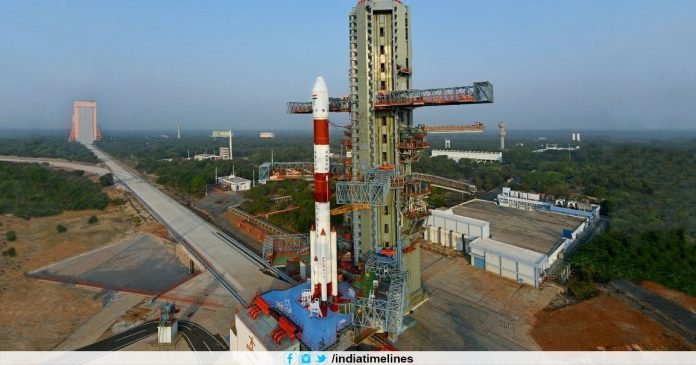
ISRO successfully launches earth observation satellite RISAT-2B- A month after the Balakot Air Strike, the Indian Space Research Organization (ISRO) has successfully achieved a major success by launching Radar Imaging Satellite Reset-2B, the Earth-monitored Radar Imaging Satellite Reset-2B from launch vehicle PSLV-C46 on Wednesday.
ISRO successfully launches earth observation satellite RISAT-2B
According to ISRO sources, the launch of the satellite was done from the first launch pad at Sriharikota, about 80 km from here, at 5.00 pm on Wednesday morning. Three hundred kilograms RISAT-2B (Reset-2B) is the fourth stage of ISRO’s RISAT program and will be used for strategic monitoring and disaster management. This satellite is equipped with an active SAR (Synthetic Arctic Radar).
The ‘Regular’ remote-sensing or optical imaging satellite in the cloud or darkness is unable to detect hidden objects on the earth, whereas this satellite equipped with an active sensor ‘SAR’ is also available during the day or night, rain or cloud. Can monitor the Earth in a special way from space. This feature of this satellite, which works in all seasons, makes it special for security forces and disaster relief agencies.
President of ISRO Dr. K. Shivan said on Wednesday that Radar Imaging Satellite Reset-2B, which monitors the successful launch of Earth from launch vehicle PSLV-C46, has many features. For the latest updates, you can visit www.indiatimelines.com.
Addressing the scientists after the successful mission, Dr. Shivan said, “I am very happy to say that PSLV-C46, set-up of 37-degree inclination in the specified class at a height of 555 km of Reset-2B satellite. done. As per Dr Shivan, “This mission is essential in that PSLV has crossed the record of taking 50 tons of space in space. It has so far established 350 satellites in the class, out of which 47 are national satellites and the remaining students and foreign satellites. Dr. Shivan said that the Reset-2B satellite is equipped with a synthetic artery radar (SSR) which enhances the capability of monitoring the earth.




































